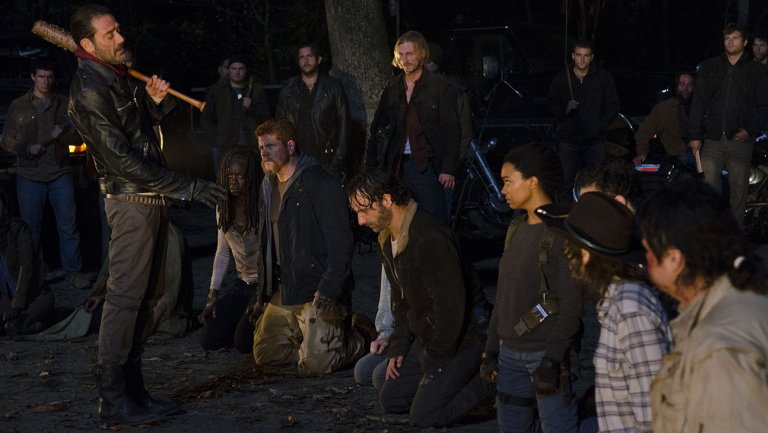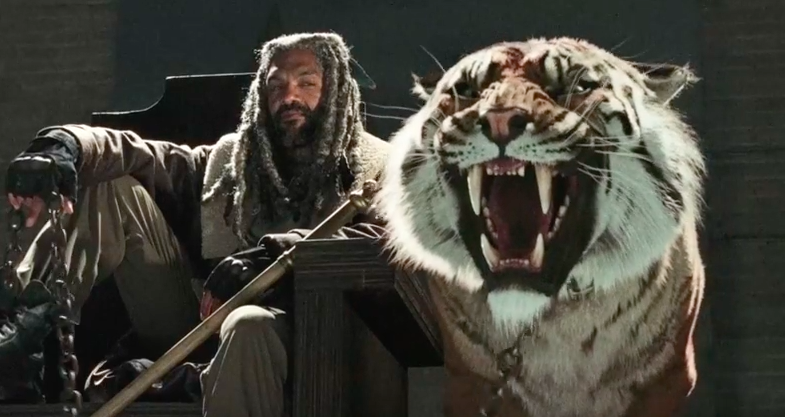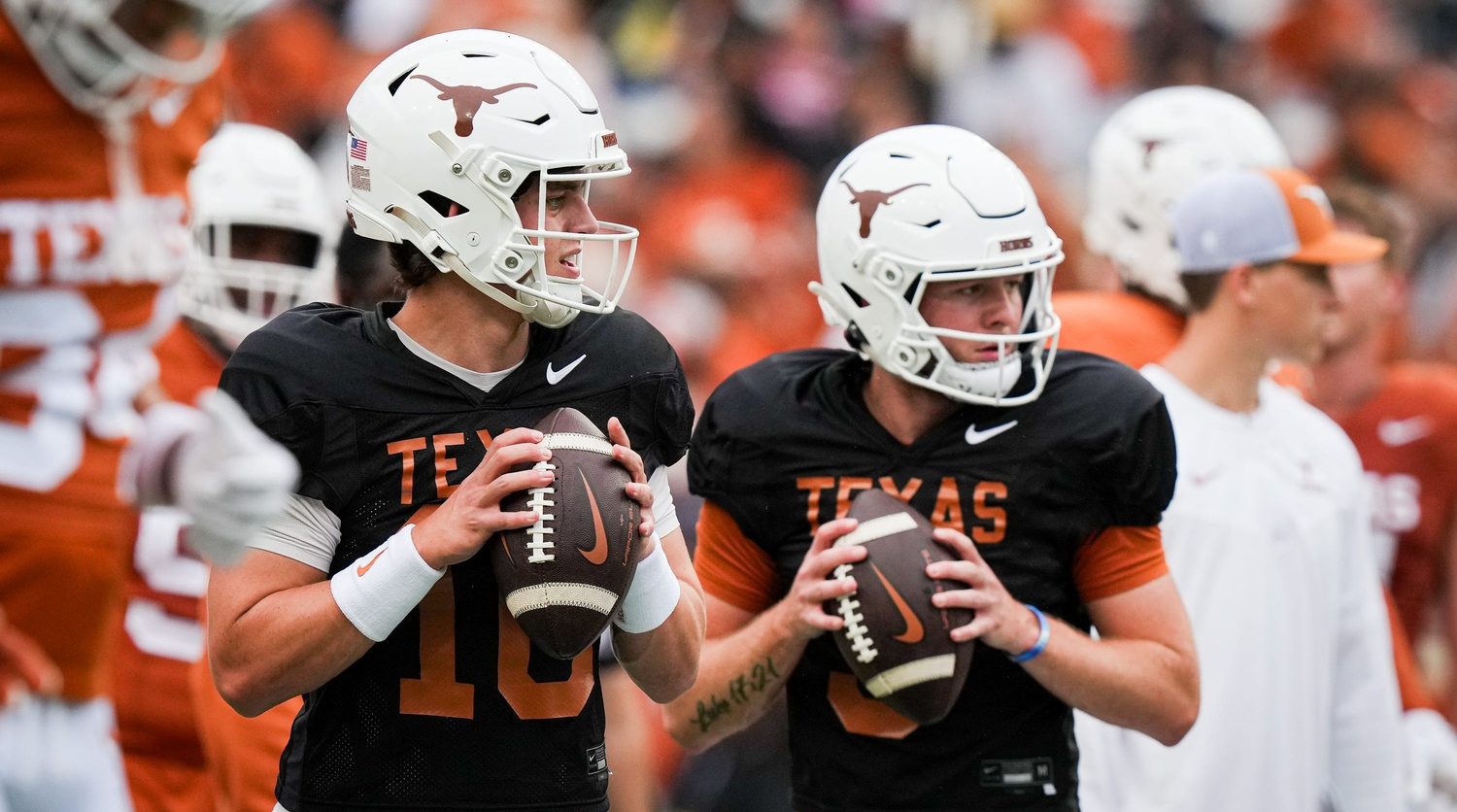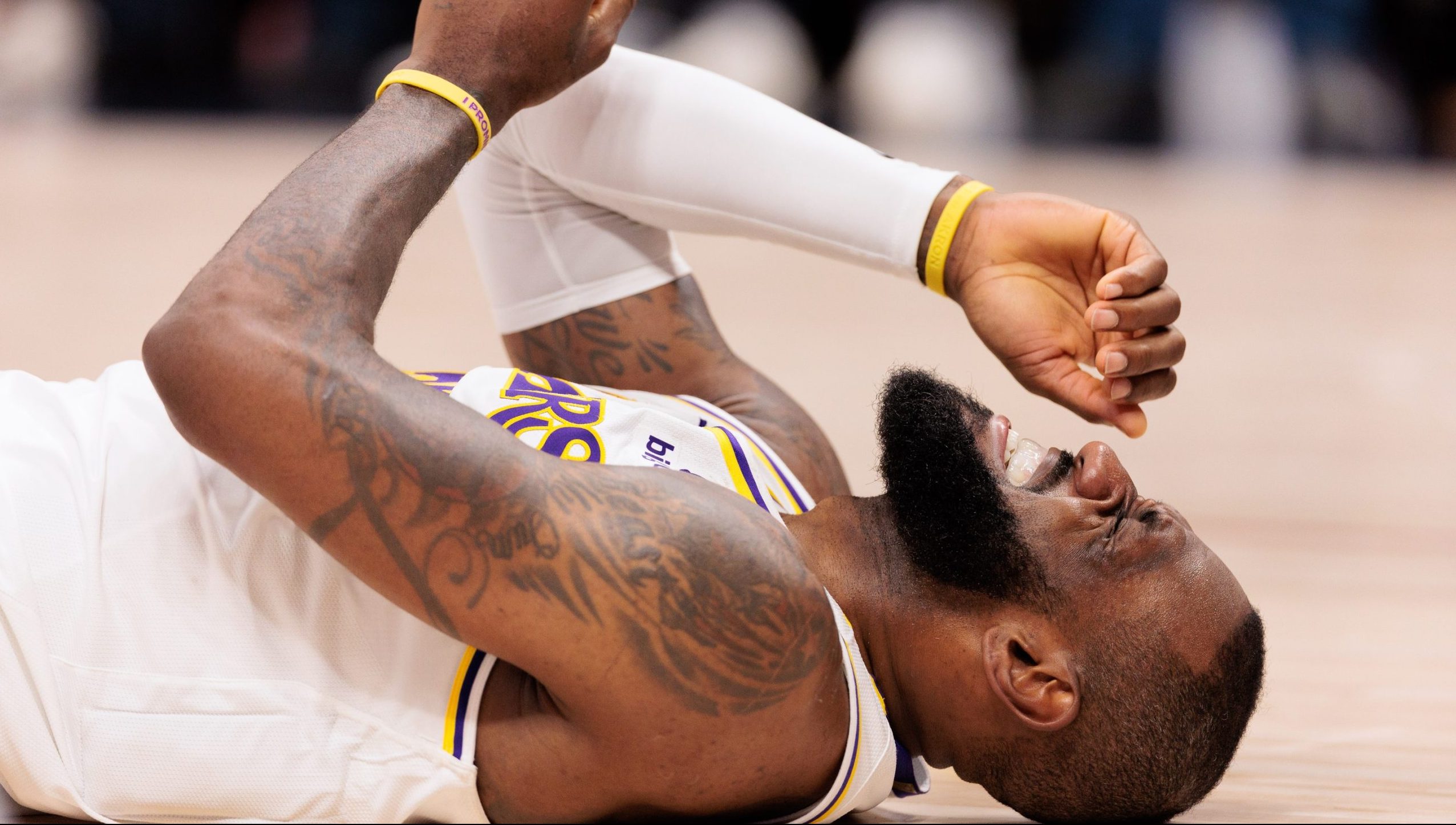The worst thing that ever happened to The Walking Dead was its ratings success.
Because AMC’s hit show was a hit from the start, TWD has never truly had to make its audience care. The show premiered at a time when American TV viewers were desperate for zombies and the idea of a show centered around the zombie apocalypse was still fresh and largely untested. The only thing less surprising than the show’s initial hit status was the ever-rising ratings that would chase it from season to season.
So think about what that does to the way producers and writers approach their project. Immediate success affects the way you plot out your stories and seasons. It removes a sense of urgency maintained by so many other shows unsure of their ongoing status. Compare that to something like Stranger Things or Westworld, both of which seemed to have tried to tell the strongest story possible in one season, knowing full well that they might have to use up all of their tricks just to be able to come back for another one.
There’s never been a concern like that for The Walking Dead. The show has never had to worry about being cancelled or losing its time slot or anything like that. It’s a juggernaut. And a juggernaut just keeps plodding forward at its own pace. Hell, it’s already been renewed for the next season. And why not? It’s the lynchpin in AMC’s television lineup.
This has created all sorts of thematic problems for the show. It allows TWD to revel in its own worst tendencies, none more so than failing to move the plot forward with every episode and relying on cheap gimmicks in order to goose discussion over meaty storytelling.
This was never more apparent than season six when the show was openly toying with audiences over the fate of Glenn rather than trying to tell immersive stories or create memorable television. TWD seemed more concerned with getting one over on snarky fanboys than it did on making you say to yourself, “That was a great episode.”
Everything culminated with a season finale remembered less for being a gripping episode of television (which it was) and more for the way it existed solely to act as a cliffhanger to the next season. Here’s what I wrote after realizing the sixth season had just been one long con job:
“The Walking Dead has become a series of cliffhangers without any kind of valuable payoff. Sure, we’ll find out who died in the first episode of Season Seven, but the emotional resonance will be long dead before that. They’re going to make us sit through a good chunk of that scene again, a scene we’ll already know all the beats of, destroying the impact. When it’s over, the show will begin another long slog towards Rick’s people overcoming the odds until we invariably reach another important plot point, at which time we’re sure to be left in the dark again by another blackout.”
The first episode of the seventh season finally delivered on the end results of Negan’s introduction and audiences showed up in droves to find out what would happen. The 17.03 million viewers who turned in made it the second-most watched episode of the show ever.
Since then, however, audiences seem to have started abandoning The Walking Dead like a zombie horde drawn to the sounds of a waiting meal elsewhere. The second episode clocked in at 12.46 million, which would have been one of the lowest-rated episodes of the previous season. After that, episodes have garnered 11.72 million, 11.40 million, and 11.00 million.
Yes, 11 million is still a ton of viewers. But to put it in perspective, The Walking Dead hasn’t seen numbers that low since the third season, when it finally broke the eight-figure barrier. Clearly, audiences have decided that they are less likely to opt in on what the show is offering them. Quite frankly, it’s about time.
There has been much discussion in the last few days about what’s going wrong for the show. Is it because the show is focusing on characters we don’t care about? It is because audiences didn’t like the way the premiere played out? Is it because the show is moving at a zombie’s pace?
Certainly all of those things are factors. Personally, I think it comes down to two very basic ideas.
First, the aforementioned lack of storytelling urgency. A lot of American genre shows have realized that shorter seasons can provide a smarter avenue to storytelling because it keeps the pressure on the writers to tell the most efficient story possible, while also making the most of the moments they have. The Walking Dead throws 16 episodes out there each season and while that might not be as many as some shows, it’s still too many.
It’s understandable that AMC would want to milk the show for all it’s worth, but the writers have rarely been up to the task of telling a complete story across the full season. Instead, the show usually feels like they know what the story should be and then they add filler to hold the audience in place until they can get to the point where the plot can move forward again. That leads to episodes which don’t feel worthwhile, character focuses we don’t care about, and a real sense that the writers are falling asleep at the wheel.
That leads into the second part: Predictability. For a show where (apparently) anyone can die at any moment and zombies could jump out and atack whenever it’s least expected, The Walking Dead has a fairly predictable pace. The first episode of the season is important. The last episode before the midseason break is important. The first episode after the midseason break is important. The season finale is important. All of the other episodes? Usually not that important.

You can see this trend play out all the way back in season two. In the season premiere, our crew encounters a swarm of zombies on the highway and Carl is shot. We then spent what feels like an eternity just hanging out on Herschel’s Farm. There’s one episode where the only thing of importance is a zombie in a well and you realize the entire hour existed just so they could show off that special effect. Then, eventually, the zombies magically show up in the season finale and the show kicks into high gear again.
These unecessary detours and time-wasters continued over the years. We spent half a season watching the show try to redeem The Governor only to remind us in the end that he was the same terrible person he always was. By season five, the show had moved its characters on from Atlanta… only to send them right back to Atlanta.
By season seven, TWD audiences are trained at this point to know that they only really need to pay attention to certain episodes, while other episodes are just going to be filler that may or may not pay off down the road. On a micro level, the show has even trained audiences to know that usually only the first five minutes and the last five minutes of a given episode matter as well. Especially given the way the quality of dialogue writing has fallen off over the seasons, it just makes most episodes of the show feel like a slog. The only thing keeping us going was the big reveals. When the show started faking those reveals just to mess with people, well, that’s how you end up hemorrhaging millions of viewers.
Can the show pull itself out of this tailspin? It’s hard to say. They’re following the plot of the comic book pretty closely at this point and all signs point to that being the case in the future. As the cast continues to expand, it’s hard to imagine that fans will get what they want in terms of focus, plot, and development. Instead, it’s likely that the show could eat itself from the outside in as it over-expands.
Then again, if season seven is a lost cause, perhaps that could be exactly the kind of impetus TWD needs to be a great TV program again. For the first time ever, they will head into a season with a sense of desperation. All the cute tricks they’ve been relying on won’t save them now. They’ll have to refocus and get back to telling interesting stories with interesting characters. Who knows, maybe losing a couple million viewers could be the best thing to happen to The Walking Dead.










Comments are closed.